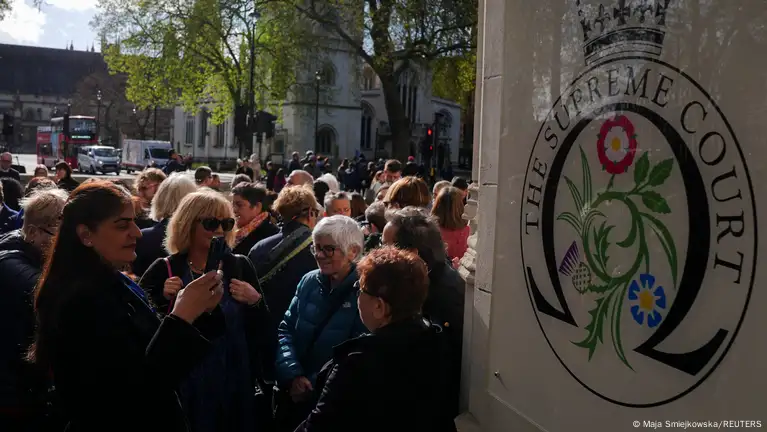special news
UK Supreme Court: ‘Woman’ Defined as Biological Female Under Law

The UK Supreme Court ruled on Wednesday that, under British equality law, the term “woman” refers specifically to an individual born biologically female. Supreme Court Justice Patrick Hodge stated, “The terms ‘woman’ and ‘sex’ in the Equality Act refer to a biological woman.” This judgment was unanimously passed by five Supreme Court judges.
The ruling clarifies that a transgender woman who holds a Gender Recognition Certificate (GRC) identifying her as female is not legally recognized as a woman in the context of UK equality law. This case stemmed from a 2018 Scottish law passed by the Scottish Parliament, which mandated 50% female representation on public boards and included transgender women in its definition of “women.”
The Supreme Court emphasized that the ruling “does not remove protection from trans people,” as they remain protected from discrimination on the grounds of gender reassignment.
Background of the Case
The case was brought forward by a group called For Women Scotland (FWS), which challenged the 2018 Scottish law. FWS argued that the redefinition of “woman” exceeded the powers of the devolved Scottish Parliament. In response, Scottish officials issued new guidelines asserting that the definition of “woman” included individuals with a Gender Recognition Certificate (GRC).
FWS contended that the Supreme Court’s ruling could affect sex-based rights and single-sex spaces, such as toilets, hospital wards, and prisons, across Scotland, England, and Wales. FWS co-founder Susan Smith remarked, “Today, the judges have affirmed what we have always believed: that women are protected by their biological sex.” Although the Scottish court rejected FWS’s challenge in 2022, the group was allowed to appeal to the Supreme Court the following year.
Reactions to the Ruling
Rights groups have condemned the ruling. Amnesty International submitted a court brief expressing concern over the diminishing rights of trans individuals in the UK and globally. The organization argued that stripping away sex discrimination protections for transgender people violates human rights laws. “A blanket policy of barring trans women from single-sex services is not a proportionate means to achieve a legitimate aim,” stated Amnesty International.
LGBTQ charity Stonewall also expressed alarm over the decision. Simon Blake, CEO of the charity, said, “Stonewall shares the deep concern regarding the widespread implications of today’s ruling from the Supreme Court.”

-

 News10 months ago
News10 months agoNUJ FCT Council Mourns The Loss of Senior Journalist, Isaiah Abraham
-

 News10 months ago
News10 months agoHURIWA Declares Governor Fubara’s Emergence as Divine, Urges Support for Rivers State’s Progress
-

 News10 months ago
News10 months agoAnioma State as panacea to South-East marginalization – By Emmanuel Onwubiko
-

 Opinion8 months ago
Opinion8 months agoNIGERIAN WOMAN IN DIASPORA, CULTURAL SHOCKS – By Stacey Ukaobasi Onwuegbuchulam
-

 News11 months ago
News11 months agoHURIWA Blames Serial Stampedes on Weaponized Poverty, Warns of Nigeria’s Rapid Decline
-

 News10 months ago
News10 months agoJealous Husband Stabs Nigerian Bishop To Death Over Suspicion Of Sleeping With Estranged Wife
-

 News10 months ago
News10 months agoTinubu sympathizes with ex-speaker Bankole on the death of his mother
-

 Health8 months ago
Health8 months agoA complete list of 154 healthcare facilities across Nigeria that provide free emergency obstetric care and VVF (Vesico-Vaginal Fistula) surgeries.












